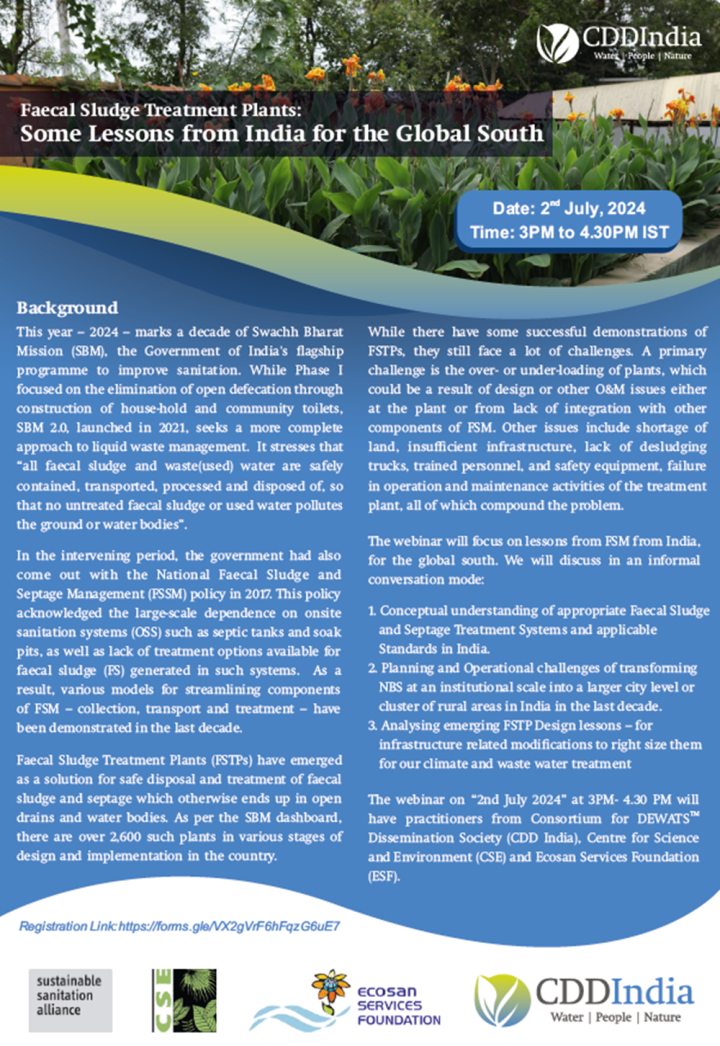Faecal Sludge Treatment Plants: Some Lessons from India for the Global South 02.07.2024 • 15:00 - 16:30 (IST)
This year – 2024 – marks a decade of Swachh Bharat Mission (SBM), the Government of India's flagship programme to improve sanitation. While Phase I focused on the elimination of open defecation through construction of house-hold and community toilets, SBM 2.0, launched in 2021, seeks a more complete approach to liquid waste management. It stresses that “all faecal sludge and waste(used) water are safely contained, transported, processed and disposed of, so that no untreated faecal sludge or used water pollutes the ground or water bodies”.

Agenda | Program
In the intervening period, the government had also introduced the National Faecal Sludge and Septage Management (FSSM) policy in 2017. This policy acknowledged the large-scale dependence on onsite sanitation systems (OSS) such as septic tanks and soak pits, as well as the lack of treatment options available for faecal sludge (FS) generated in such systems. As a result, various models for streamlining components of FSM – collection, transport, and treatment – have been demonstrated in the last decade. Faecal Sludge Treatment Plants (FSTPs) have emerged as a solution for the safe disposal and treatment of faecal sludge and septage, which otherwise ends up in open drains and water bodies. As per the SBM dashboard, there are over 2,600 such plants in various stages of design and implementation in the country. While there have been some successful demonstrations of FSTPs, they still face many challenges. A primary challenge is the over- or under-loading of plants, which could be due to design or other O&M issues either at the plant or from lack of integration with other components of FSM. Other issues include a shortage of land, insufficient infrastructure, lack of desludging trucks, trained personnel, and safety equipment, and failures in operation and maintenance activities of the treatment plant, all of which compound the problem. The webinar will focus on lessons from FSM from India, for the global south. We will discuss in an informal conversation mode: - Conceptual understanding of appropriate Faecal Sludge and Septage Treatment Systems and applicable Standards in India. - Planning and Operational challenges of transforming NBS at an institutional scale into a larger city level or cluster of rural areas in India in the last decade. - Analysing emerging FSTP Design lessons – for infrastructure-related modifications to right-size them for our climate and wastewater treatment. The webinar on “2nd July 2024” at 3 PM - 4:30 PM will have practitioners from the Consortium for DEWATS Dissemination Society (CDD India), Centre for Science and Environment (CSE), and Ecosan Services Foundation (ESF).Filter / Tags
Online event (webinar, moocs, forum discussion)
